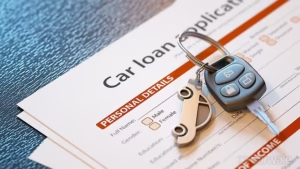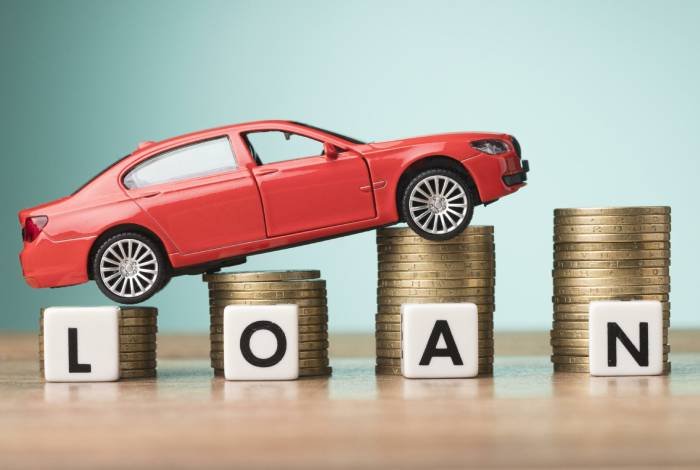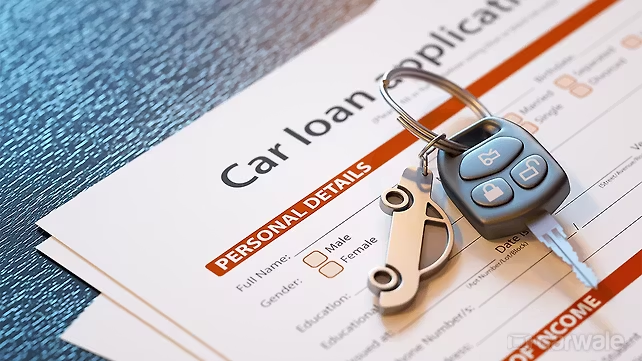Car loans are a common financial commitment for many people. A car is an essential asset for daily transportation, and most individuals rely on loans to afford the vehicle of their choice. However, the burden of repaying a car loan can sometimes feel overwhelming, especially if financial hardship strikes or if you regret your car purchase. In these situations, many individuals might wonder: How can a lawyer help me get out of a car loan? This blog will explore various ways a lawyer can assist you in navigating the complexities of exiting or modifying your car loan agreement, from legal strategies to negotiations and potential outcomes.
Understanding Car Loans and Their Implications
Before diving into how a lawyer can help, it’s important to understand the basic structure of a car loan and the potential consequences of not being able to repay it. A car loan is typically a secured loan, which means the vehicle itself acts as collateral. The loan terms, interest rates, and repayment period are outlined in a contract between the borrower (you) and the lender (usually a bank, credit union, or car dealership).
Car loans generally last anywhere from 36 to 72 months, and defaulting on a loan can lead to significant financial consequences, including:
- Late Fees: Missing payments can result in penalties, making the overall loan amount more expensive.
- Damage to Credit Score: Late or missed payments can lower your credit score, affecting your ability to obtain loans or credit in the future.
- Repossession of the Vehicle: If payments aren’t made, the lender can seize the vehicle, leaving you without transportation and still owing the balance of the loan.
While this might seem grim, there are legal options available to get out of a car loan. This is where a lawyer can step in to offer guidance and assistance.
When to Consider Hiring a Lawyer for Car Loan Issues
If you find yourself struggling to keep up with your car loan, it may be time to consider hiring a lawyer. Below are some situations in which consulting with an attorney can provide value:
1. You’re Facing Financial Hardship and Can’t Make Payments
If you’re experiencing financial hardship (such as job loss, medical expenses, or other unexpected circumstances), you may no longer be able to afford the monthly payments on your car loan. If you are at risk of missing payments or defaulting on your loan, it’s a good idea to consult with a lawyer who specializes in consumer protection or bankruptcy law to explore potential solutions.
2. You’re Considering Voluntary Surrender or Repossession
If you’re no longer able to afford the car, but you don’t want your lender to take the car without your consent, a lawyer can assist in negotiating a voluntary surrender. This is when you return the vehicle to the lender to satisfy the debt, potentially avoiding the negative impact of repossession.
3. You Believe the Loan Was Unfair or Fraudulent
In some cases, consumers discover that they were misled or defrauded by the dealership or lender. If you believe the loan terms were misleading or that you were subject to predatory lending practices, a lawyer can help determine whether you have a case for fraud or breach of contract.
4. You’re Looking to Refinance or Modify the Loan
Sometimes, simply renegotiating or refinancing your loan can reduce the monthly payment amount or give you more time to repay the debt. A lawyer can help you understand your rights and help negotiate better terms with the lender. In some cases, a lawyer may also assist you in getting a loan modification that reduces your interest rate or extends the term of the loan.
5. You’re Facing Repossession and Want to Fight It
If you’ve missed several payments and are facing repossession, a lawyer can help you fight this process, potentially buying you more time to catch up on payments or negotiate a settlement. Depending on the situation, there may be legal grounds to challenge the repossession or to prevent it from occurring if the lender violated your rights.
How Can a Lawyer Help You Get Out of a Car Loan?
There are a variety of legal options available that a lawyer can explore to help you get out of a car loan, and these options largely depend on your situation. Let’s look at some of the key ways an attorney can assist:
1. Negotiating a Loan Settlement
One of the most common strategies a lawyer can use is to help negotiate a settlement with the lender. Lenders often prefer negotiating a settlement to avoid the costly and time-consuming process of repossession. A lawyer may be able to help you reduce the total amount owed on your car loan or agree on a lower monthly payment plan.
The lawyer might negotiate:
- A one-time lump-sum payment that settles the loan for less than the full amount due.
- A reduced interest rate or adjusted terms to make the loan more affordable.
- A longer repayment period to reduce monthly payments.
- A lower principal balance by arguing for a reduction in the amount owed due to financial hardship.
A skilled attorney can communicate effectively with the lender to ensure that you reach a favorable agreement that doesn’t leave you financially devastated.
2. Voluntary Surrender of the Vehicle
If you’re unable to keep up with your car payments, and repossession seems inevitable, a lawyer may assist you in voluntarily surrendering the vehicle. Voluntary surrender involves returning the car to the lender and agreeing to give up ownership, but it can offer some benefits over forced repossession:
- Less Damage to Your Credit: While voluntary surrender will still negatively affect your credit, it may have a less severe impact than repossession because you are proactively returning the vehicle.
- Avoiding Repossession Fees: When the lender repossesses a car, they typically charge additional fees for the process. Voluntary surrender may help you avoid some of these fees.
A lawyer can negotiate with the lender to ensure that the process of voluntary surrender is as smooth as possible, protecting you from additional legal consequences and fees.
3. Exploring Bankruptcy as a Solution
In cases where you are deeply in debt and cannot afford to repay your car loan along with other obligations, bankruptcy may be an option. There are two types of bankruptcy most relevant to individuals facing car loan issues:
- Chapter 7 Bankruptcy: This type of bankruptcy allows for the liquidation of assets to pay off debts. If you have no equity in the car or if you don’t want to keep the vehicle, Chapter 7 bankruptcy may allow you to discharge your car loan.
- Chapter 13 Bankruptcy: If you want to keep your car, Chapter 13 bankruptcy may be an option. This type of bankruptcy involves creating a repayment plan to pay off a portion of your debts over a period of 3 to 5 years, which may include your car loan. Depending on the circumstances, Chapter 13 bankruptcy can potentially reduce the total amount you owe on the car loan.
Bankruptcy is a serious financial decision that should be considered carefully, and a bankruptcy lawyer can help you navigate the complexities of this process.
4. Challenging the Loan Terms (Fraud or Predatory Lending)
If you believe that you were misled or that the car loan terms were unfair, deceptive, or fraudulent, a lawyer can help investigate your case and possibly pursue legal action. Some signs of predatory lending include:
- Excessive interest rates or fees for no legitimate reason.
- Hidden fees that weren’t disclosed during the loan process.
- Deceptive practices that mislead you into believing you can afford the loan, when in fact the terms are designed to trap you in a cycle of debt.
A lawyer can help you investigate whether you have a case for fraud or predatory lending and can assist you in filing a lawsuit or taking other legal action against the lender or car dealership.
5. Fighting Repossession
If you are facing repossession and you don’t want to lose your vehicle, a lawyer can intervene on your behalf. In some cases, repossession may be wrongful, meaning the lender didn’t follow the proper legal procedures to take the vehicle. A lawyer can challenge the repossession and may be able to delay it or prevent it from happening altogether.
For example, if the lender didn’t provide the proper notices or violated your rights in other ways, a lawyer could help you challenge the repossession process in court.
What to Expect When Hiring a Lawyer for Car Loan Issues
When hiring a lawyer to help with your car loan, there are a few things to consider:
- Initial Consultation: Many lawyers offer a free initial consultation, during which they will evaluate your case and explain your options.
- Cost: Lawyers typically charge either a flat fee or an hourly rate, depending on the complexity of the issue. Be sure to discuss fees upfront before hiring a lawyer.
- Time: Resolving car loan issues through legal means can take time, depending on the complexity of the situation. Be patient and work closely with your lawyer to achieve the best outcome.
Conclusion
If you’re struggling with a car loan and don’t know how to get out of it, hiring a lawyer can be a smart decision. Whether you’re looking to negotiate a settlement, voluntarily surrender the vehicle, explore bankruptcy, challenge the loan terms, or fight repossession, a lawyer can provide valuable legal guidance and representation. By understanding your rights and options, a lawyer can help you navigate the difficult waters of car loans and financial hardship, ultimately helping you get back on solid financial ground.










